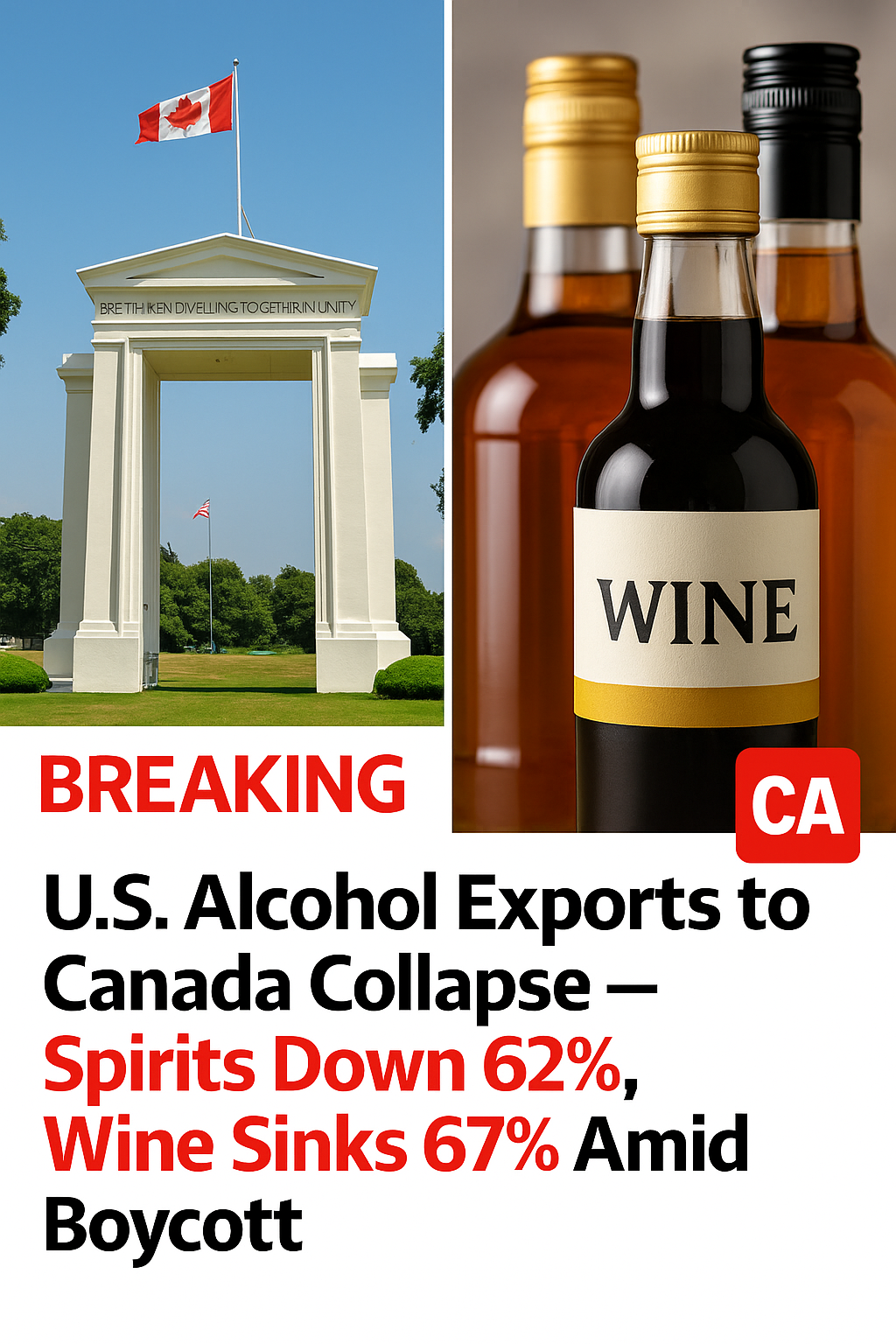Physical Address
304 North Cardinal St.
Dorchester Center, MA 02124
Physical Address
304 North Cardinal St.
Dorchester Center, MA 02124

Canada’s growing resistance to U.S. trade policies has triggered one of the most dramatic drops in cross-border alcohol sales in recent memory. According to industry estimates, exports of American alcoholic beverages to Canada fell by more than 60% in the first half of 2025, with wine shipments alone plunging 67% compared to the same period last year.
The decline is rooted in escalating trade tensions between the two countries. After the U.S. imposed steep 35% tariffs on a wide range of Canadian imports, several Canadian provinces responded by restricting the sale of U.S. alcohol. Large provincial distributors, including the Liquor Control Board of Ontario (LCBO), stopped stocking American wine and spirits, instead filling shelves with Canadian and European alternatives. This shift has created both an economic and symbolic stand against U.S. trade moves.
For American distillers and winemakers, the fallout has been swift and costly.
While U.S. exporters suffer, Canadian alcohol producers are seeing a surge. Domestic wineries and distilleries report a 14% increase in sales, with consumers showing strong support for local brands. For many Canadians, buying domestic has become both a patriotic choice and a practical way to counter U.S. tariffs.
Industry observers note that this boycott has become more than an economic measure—it is now a political statement. “This isn’t just about trade. It’s about fairness, respect, and long-standing trust,” one trade analyst commented.
The situation leaves both governments facing mounting pressure. For the U.S., the sharp decline in alcohol exports highlights the risks of tariff-driven policies that provoke retaliation. For Canada, the boycott has strengthened its domestic producers but also underscores the fragility of cross-border trade.
If tensions remain unresolved, analysts warn that the U.S. alcohol industry could face billions in long-t